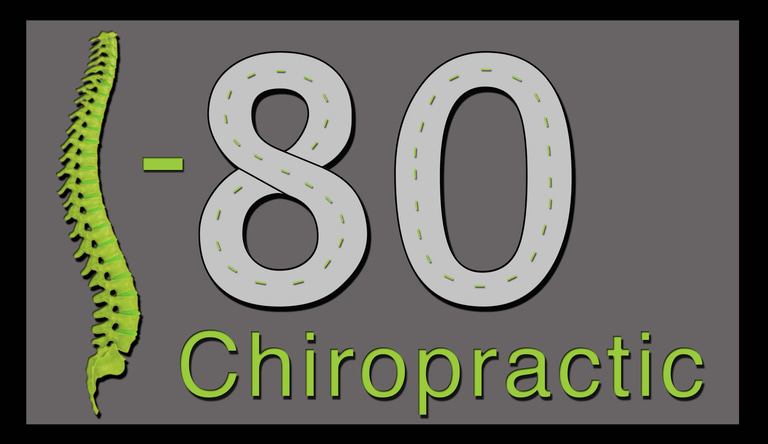

Department of Transportation (DOT) physical exams ensure that drivers are in good health to do their job safely. The federal regulations require all drivers of commercial motor vehicles (CMVs) to pass a physical to obtain a DOT medical card.
A DOT physical, also called a CDL physical, is a test of your general health, mental and emotional well-being and are required for drivers at trucking, construction, local delivery, waste and recycling, moving, passenger transportation, distribution, and other companies.
What can you expect during the DOT physical exam?
A DOT physical exam assesses a driver's overall health and fitness for duty, ensuring they can safely operate commercial vehicles. It includes a review of medical history, vital signs (blood pressure, pulse, etc.), vision and hearing tests, a physical examination, and a urinalysis. The exam aims to identify any conditions that might impair a driver's ability to operate a commercial motor vehicle safely, according to the Federal Motor Carrier Safety Administration.
Here's a more detailed breakdown:
1. Medical History Review: The examiner will ask about your past and present health conditions, medications, and any surgeries you've had.
2. Vital Signs: Your height, weight, blood pressure, pulse, and temperature will be recorded.
3. Vision and Hearing Tests: You'll need to demonstrate 20/40 vision or better in each eye (with or without corrective lenses) and be able to hear a forced whisper from 5 feet away.
4. Physical Examination: The examiner will check your general appearance, skin, eyes, ears, nose, throat, lungs, heart, abdomen, back and spine, extremities (arms and legs), nervous system (reflexes), and gait (how you walk).
5. Urinalysis: A urine sample is collected to screen for conditions like diabetes or kidney problems. It's important to note that the urinalysis in a DOT physical is not a drug test.
6. Mental and Emotional Health: You may be asked about your mental and emotional well-being to assess for any conditions that could affect your ability to drive safely.
7. Certification: If the examiner determines you are medically qualified, you'll receive a Medical Examiner's Certificate, which is valid for up to two years.
Important Note: It's crucial to be honest and accurate when completing the medical history portion of the exam. Providing false or misleading information can have serious consequences.
PREPARE FOR YOUR DOT EXAM BY FOLLOWING THESE GUIDELINES
If you have questions, don't hesitate to call.
THINGS TO BRING TO YOUR DOT PHYSICAL:
* A state issued photo ID (i.e. driver’s license)
* List of all medications that you are prescribed.
* List of all Surgeries.
*Contact lenses or glasses - if there is a restriction on your license or if you need them to pass the vision test.
*Hearing aid(s) - if there is a restriction on your license or if you need them to pass the hearing test.
If you have one of these medical conditions listed below, you will have to bring the paperwork pertaining to that specific condition. This paperwork will come from your treating physician and can be emailed directly to me at I80Chiropractic2011@gmail.com or bring a paper copy with you when you come in.
SLEEP APNEA
*A compliance data report already downloaded. Or a compliance data report from your phone app if applicable.
MONOCULAR VISION- Vision in only one eye.
*Completed Vision Evaluation Report Form MSCA-5871
*Must be completed by an Optometrist or Ophthalmologist within 45 days of the physical exam
HIGH BLOOD PRESSURE – FMCSA considers controlled blood pressure 140/90 or lower (If you are currently treating)
*List of medications (prescription or over the counter)
NON-ITDM (NON-INSULIN-TREATING DIABETES MELLITUS) If you are just taking medication and not on insulin for Diabetes.
*Most recent HG A1C
ITDM (INSULIN-TREATING DIABETES MELLITUS) If you are taking Insulin for Diabetes.
*Completed ITDM Assessment Form MCSA-5870
* Must be filled out by the Treating Clinician (TC) that prescribes your insulin within 45 days of the physical exam.
* Must disclose any severe hypoglycemic episodes
CARDIOVASCULAR DISEASE OR EVENT (HEART ATTACK, HEART CONDITIONS, STROKE, ETC.)
*Your most recent echocardiogram and stress test
* A signed release from your treating physician
USE OF BLOOD THINNERS (LIKE WARFARIN)
*Your most recent INR
PACEMAKER WITHOUT DEFIBRILLATOR
*Signed release from your treating physician
PACEMAKER WITH DEFIBRILLATOR
**** The Federal Motor Carrier Safety Administration (FMCSA) generally prohibits individuals with implantable cardioverter defibrillators (ICDs) from operating
commercial motor vehicles (CMVs) due to safety concerns related to potential syncope (loss of consciousness) and other cardiac events. However, the FMCSA does
consider exemption requests from these regulations on a case-by-case basis.****
DOT Disqualifying Medical Conditions
Under FMCSA regulations (49 CFR 391.41), a medical examiner may not certify a driver who has a DOT disqualifying medical condition or uses a medication/substance that compromises the ability to drive safely. DOT disqualifying medical conditions include those that may lead to loss of consciousness or involve inadequate hearing or vision, a compromised nervous system, or physical limitations that interfere with driving ability. Drivers who are able to resolve a DOT disqualifying medical condition are allowed to seek re-certification, and frequently do.
While a complete list of DOT disqualifying medical conditions is not possible here, the primary ones you may encounter are below:
Certain heart conditions. Examples of heart conditions that are disqualifying until they are resolved and/or clearance is given by a cardiologist include current clinical diagnoses of heart attack, chest pain or discomfort due to heart disease (angina pectoris), reduced blood flow through one or more coronary arteries (coronary insufficiency), or risk of forming a blood clot (thrombosis). Taking nitroglycerine for angina is not necessarily medically disqualifying, provided the angina is stable.
Epilepsy or other conditions that can result in loss of consciousness. FMCSA regulations prohibit a person with epilepsy or other seizure disorder from operating a commercial vehicle across state boundaries. Drivers who can show that their seizures are under control may be eligible to submit an application to the FMCSA for a seizure exemption. (See “Seizure Package” at the end of this article.)
Inner ear diseases or disorders that cause vertigo (spinning/dizziness) or other balance issues. Meniere’s disease is an example. It affects the inner ear. Many lifestyle aspects of trucking might trigger vertigo for a driver with Meniere’s disease, which is why it is classified as a DOT disqualifying medical condition. Meniere’s disease is unpredictable and its triggers include overwork, fatigue, smoking, and too much salt in the diet.
Certain medications for the treatment of vertigo also may be disqualifying if the medical examiner concludes there are potential sedative effects that may compromise safety. On occasion, drivers with certain balance disorders are able to seek re-certification after being symptom-free for a period of time.Diabetes, high blood pressure, and respiratory conditions are discussed in the next section on DOT disqualifying medical conditions where the medical examiner has discretion in deciding whether or not to grant DOT certification.
Vision and/or hearing loss. Drivers unable to demonstrate at least 20/40 vision in each eye and both eyes together, with or without corrective lenses, are medically disqualified. However, there is a vision exemption available. A driver must be able to meet peripheral vision requirements and also able to recognize the colors of traffic signals and devices showing the standard red, green, and amber colors.
For hearing, two tests may be performed. If the driver passes the first test (forced whisper), then the second test (an audiometry test) is not needed. In the forced whisper test, the driver must be able to hear a forced whisper in one ear (the better ear) at five feet, with or without a hearing aid. If the driver cannot pass the forced whisper test, passing an audiometry test still may allow certification. Failing both tests makes hearing loss a DOT disqualifying medical condition.
As with vision and seizure, the driver may apply for an exemption.Use of marijuana. Even if a licensed medical practitioner has prescribed or recommended it, marijuana use is a DOT disqualifying medical condition. This is true whether it is used alone, as CBD oil, or in any product or preparation derived from hemp or cannabis. The federal Drug Enforcement Agency (DEA) prohibits use of Schedule I substances, which include marijuana, heroin, LSD, mescaline, MDMA (“ecstasy”), psilocybin mushroom, methaqualone (Quaalude), cathinone/khat, and 3,4-methylenedioxypyrovalerone (MDPV).
I-80 Chiropractic is exceptional! The chiropractic care and professionalism during my DOT physical were top-notch.
John S.

★★★★★
Services
Chiropractic care, CDL physicals,
Drug and Alcohol Testing.
Contact
i80chiropractic2011@gmail.com
(563) 340-8885 Call or Text
© 2025. All rights reserved.
The Iowa 80 Truckstop
755 W Iowa 80 Rd, Walcott, IA 52773 Exit 284
Top floor of the main building
Hours
Monday to Friday 9:00 am to 2:00 pm
Walk in up to 2pm, no appointments needed.
Saturday and Sunday
By appointment only.
